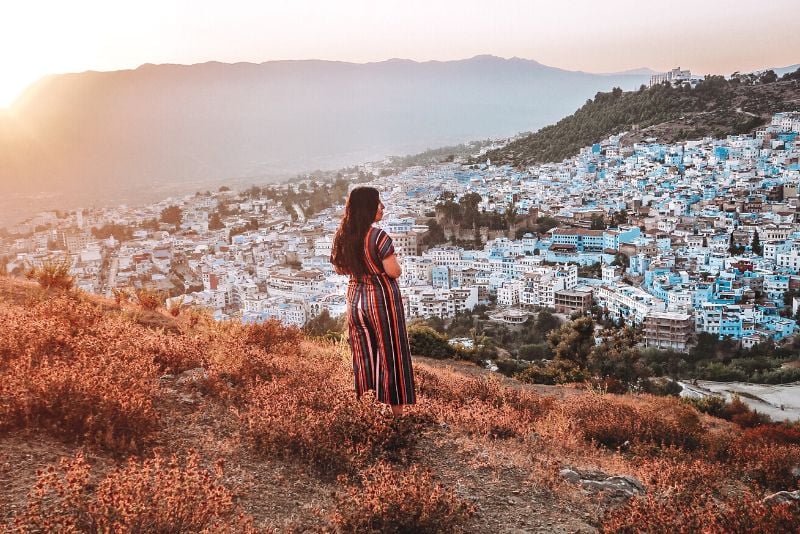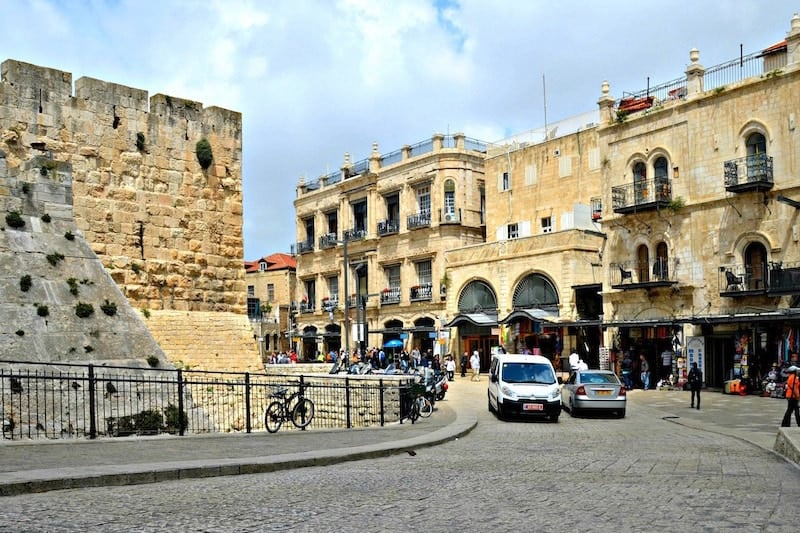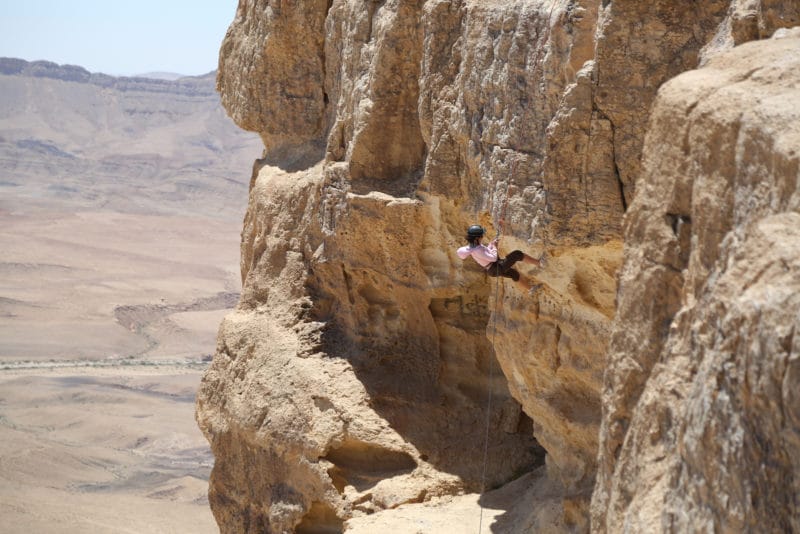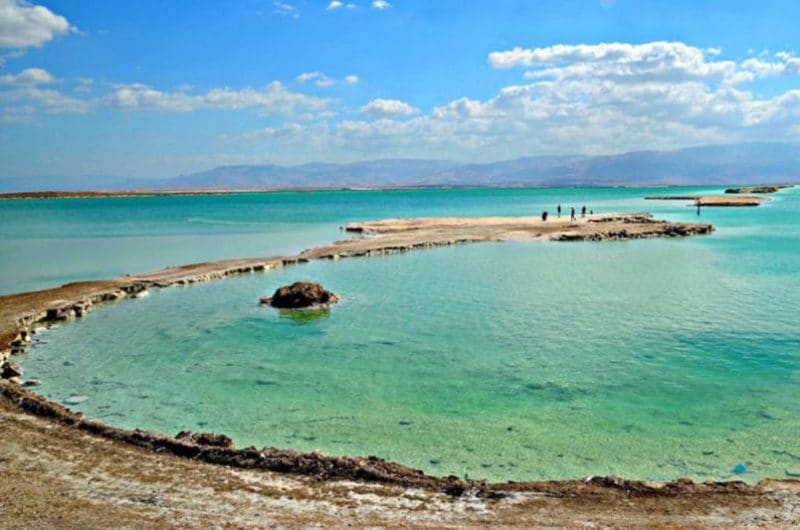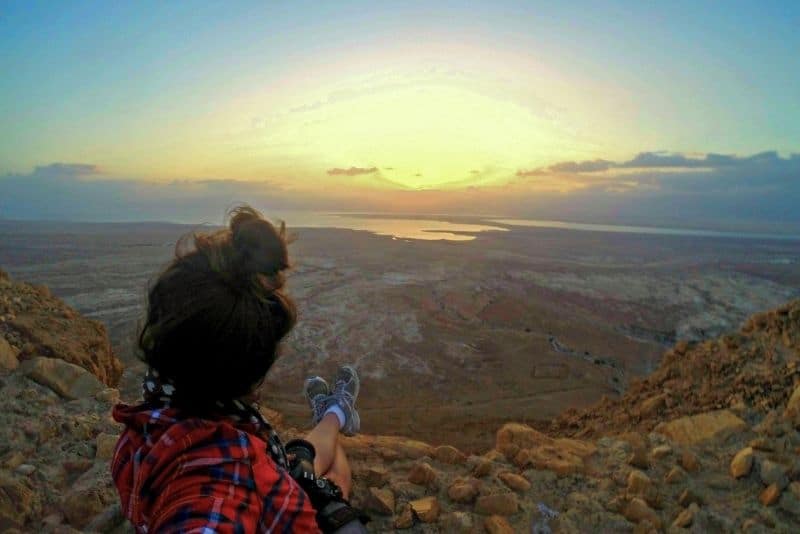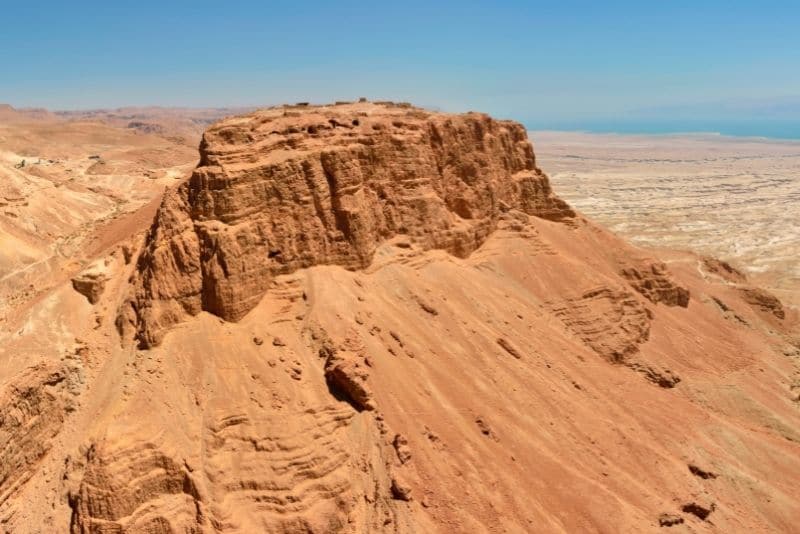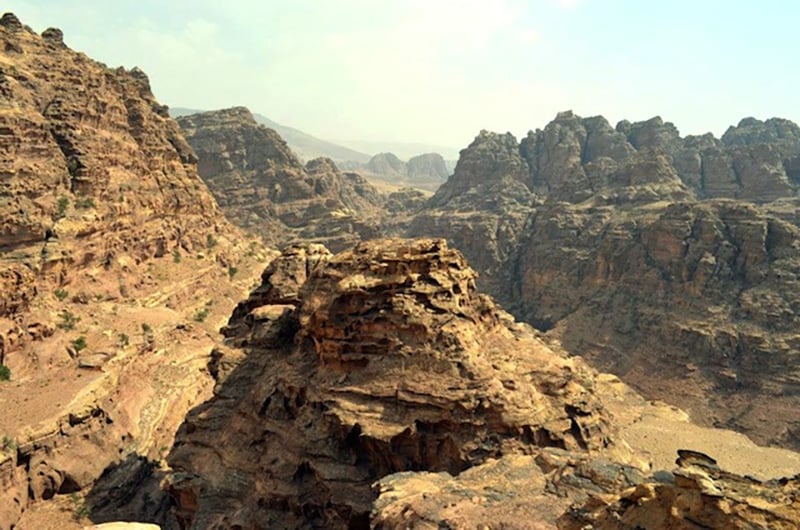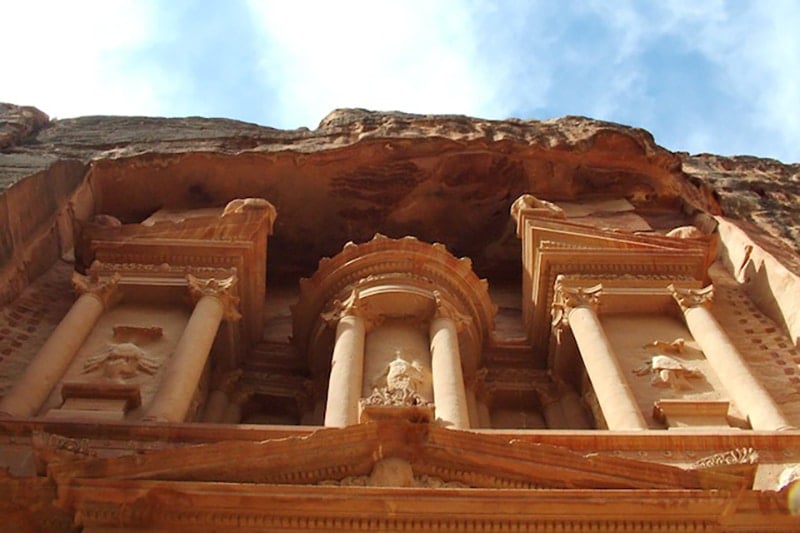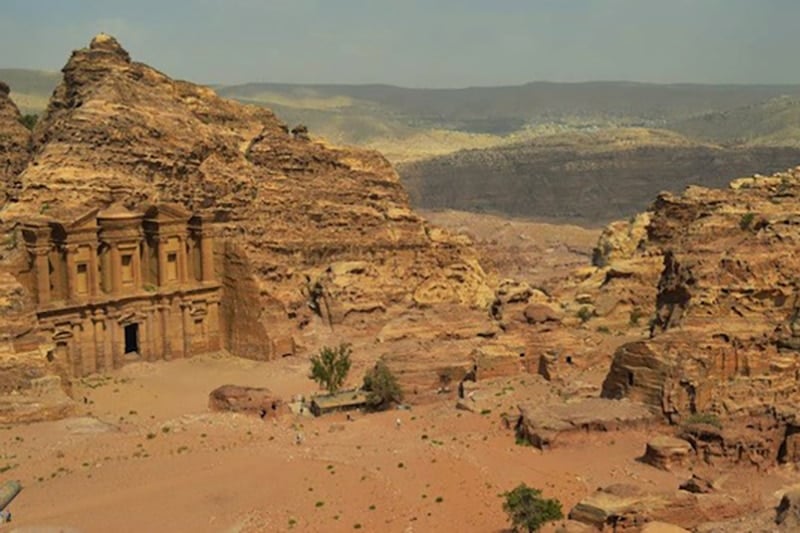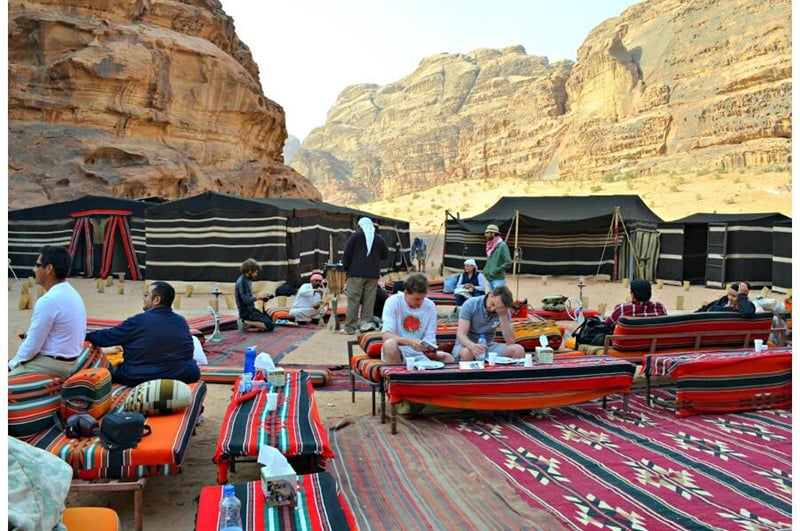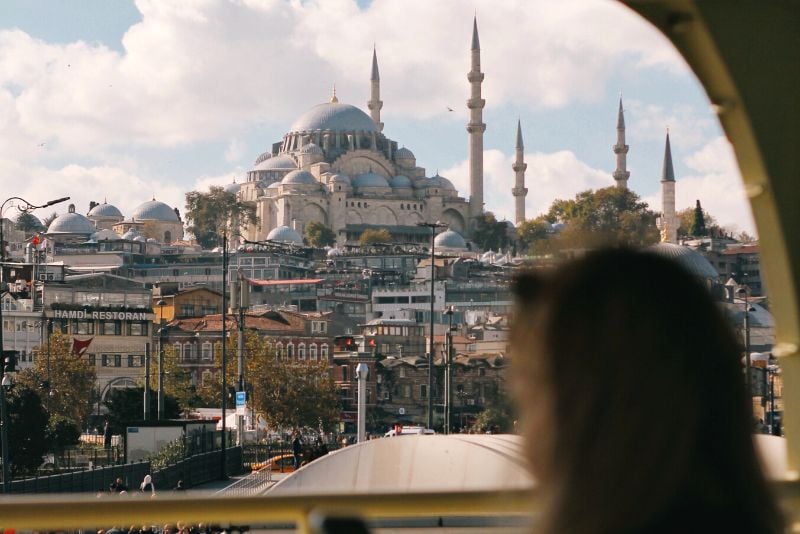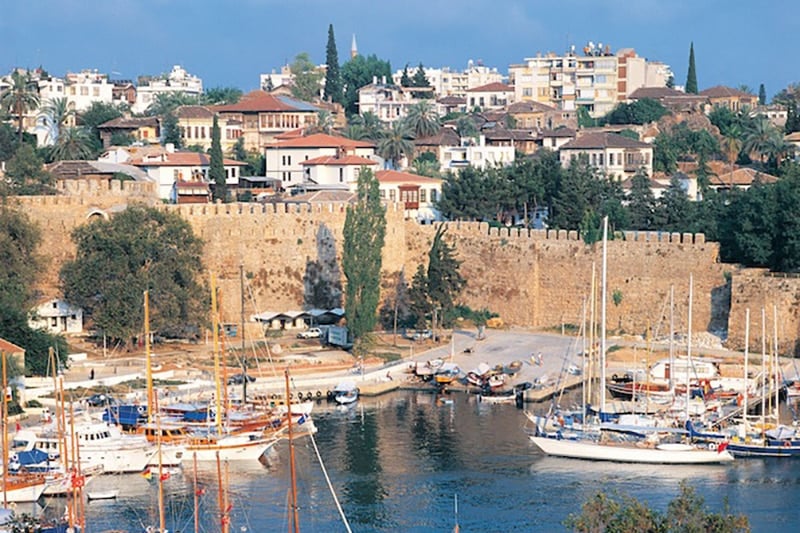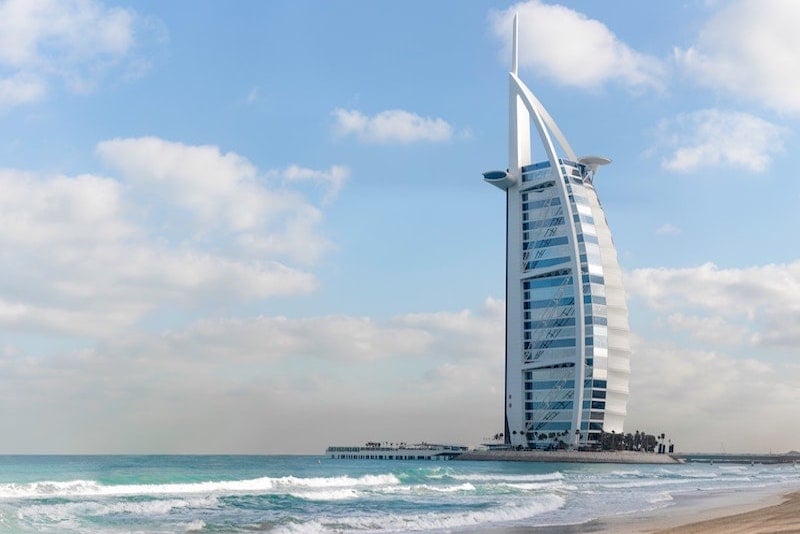Middle East Travel Guide
Looking for an in-depth Middle East travel guide?
Then you’re in the right place!
The Middle East is probably one of the most misunderstood regions in the world, one that many see as dangerous or off-limits to travelers.
While a trip to the Middle East requires a bit more planning and consideration than many other destinations, it’s a place that everyone should visit at some point in their lives.
Rich in history, culture, and beautiful places, it’s no wonder the region is high on the bucket lists of so many travelers around the world.
If you’re a history buff, you definitely won’t want for things to do in the Middle East. The region is home to some of the top historic sites in the world such as the Pyramids of Giza in Egypt, Old City Jerusalem in Israel, and the Roman ruins at Jerash in Jordan.
As the birthplace of the three Abrahamic religions (Judaism, Christianity, and Islam), the Middle East is a great place to learn more about some of the world’s most practiced religious traditions.
From ancient sites like the Western Wall in Jerusalem to modern wonders like the Sheikh Zayed Mosque in Abu Dhabi there is much to explore.
If you want to embark on a grand tour of the Middle East, you’ll want to plan for at least a 10-day itinerary in order to spend enough time in each country.
You also may need to plan some extra time to get from one destination to the other, as security and border crossings between countries can be complicated. It’s best to research your destinations thoroughly before booking anything in this region, as you don’t want to find yourself with the wrong visa or unprepared for any necessary expenses.
You’ll find some great tips below in the FAQ section of this guide and more specific information in our travel guides for Jordan, Israel, and Turkey.
Many travelers to the region also opt to sign up for an organized tour which can take some of the guesswork out of planning a Middle Eastern adventure and provide access to exclusive experiences.
Whatever way you choose to travel, you’re sure to have an incredible time in the Middle East.
Keep reading to dive into resources that will help you with planning a trip to the Middle East.
Note: This ultimate guide to Middle Eastern travel contains affiliate links to trusted partners!
- Middle East Map
- Middle East Travel Tips
- Iran Travel Guide
- Israel Travel Guide
- Jordan Travel Guide
- Morocco Travel Guide
- Turkey Travel Guide
- United Arab Emirates Travel Tips
- Best Middle East Tours
- Renting A Car In The Middle East
- Middle East Hotels
- Middle East Travel Insurance
- Middle East Travel Guide FAQ
- Q: What are 15 attractions in the Middle East that shouldn't be missed?
- Q: What are the best Middle Eastern countries to visit?
- Q: What do I need to know before going to the Middle East?
- Q: Is the Middle East safe for tourists?
- Q: Is the Middle East cheap or expensive?
- Q: What amount should I have in mind when it comes to Dubai vacation costs?
- Q: Where can I take a Middle East road trip?
- Q: Do I need a Middle East travel visa?
- Q: What countries are in the Middle East?
- Q: What are some major Middle East airlines?
- Q: Are credit cards accepted in the Middle East?
- Q: Can you drink the tap water in the Middle East?
- What would you add to this Middle East travel guide?
Middle East Map
Use this Middle East travel map to begin planning your trip to this incredible country!
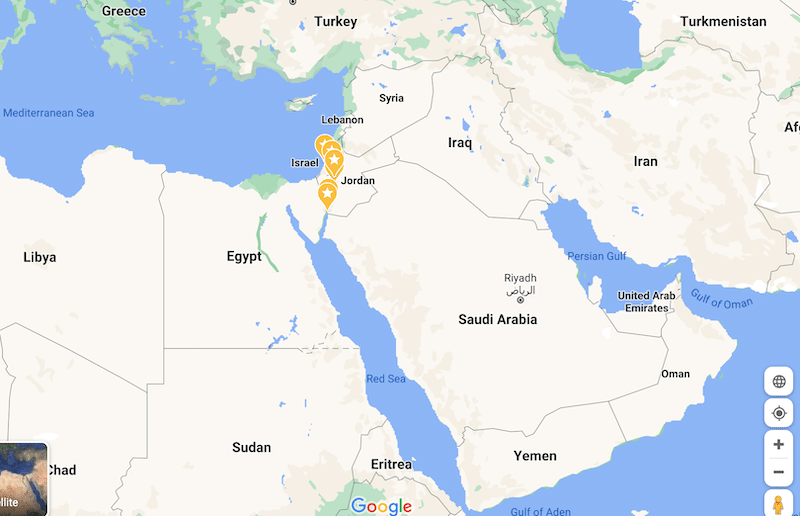
Click here for an interactive Google Map version of the above graphic.
Middle East Travel Tips
Confidently travel solo in the Middle East with the help of the following guides:
Iran Travel Guide
Visiting Iran? The following posts will help you plan the perfect trip!
Israel Travel Guide
These guides share travel tips and recommended highlights for planning the perfect Israel itinerary!
Best Places To Visit In Israel
The following guides share Israel highlights and experiences that you won’t want to miss!
Travel Tips For Israel
Plan the perfect trip with these Israel travel tips!
Jordan Travel Guide
These guides share travel tips and recommended highlights for planning the perfect Jordan itinerary!
Jordan Tourism Highlights
The following guides share Jordan highlights & travel experiences that you won’t want to miss!
Jordan Travel Advice
Plan the perfect trip with these Jordan travel tips!
Morocco Travel Guide
Plan an unforgettable trip to Morocco with the help of the following travel guide
Turkey Travel Guide
These guides share travel tips and recommended highlights for planning the perfect Turkey itinerary!
Solo Travel In Turkey
Plan a safe and fun solo trip to Turkey with the following guides:
Turkey Travel Itinerary
Explore Turkey through these recommended experiences!
Turkish Cuisine
Explore local culture through Turkish food & recipes!
United Arab Emirates Travel Tips
The following guides will help you plan the perfect trip to the UAE!
Best Middle East Tours
Explore local culture with a Middle Eastern tour guide through these unique excursions:
- Private Tour Madaba, Mount Nebo, and Dead Sea Day Trip with Amman Sightseeing from Amman (Jordan)
- Half-Day Desert Tours | Wadi Rum Desert (Jordan)
- Jet Ski Tour of Dubai: Burj Al Arab, Dubai Marina, Atlantis, Palm & Burj Khalifa (United Arab Emirates)
- Sunrise Desert Safari Tour from Abu Dhabi (United Arab Emirates)
- Guided Tour To The Giza Pyramids & Sphinx With Lunch & One Hour Quadbike from Cairo (Egypt)
- Masada and the Dead Sea Day Trip from Tel Aviv (Israel)
- Cappadocia Sunrise Hot Air Balloon with Flight from Istanbul (Turkey)
- Wadi Shab Coastal Trekking from Muscat (Oman)
- Nature Flora and Fauna Trip from Manama (Bahrain)
Click here for a full list of Middle East travel tours!
Renting A Car In The Middle East
Need a rental car for your Middle East trip?
Use Discover Cars to quickly compare your car rental options.
Their comparison tool does the homework for you, so there’s no need to have up 10+ tabs trying to figure out which company is the most affordable. Actually, you can save up to 70% using their tool!
Middle East Hotels
Click here to browse the best Middle East travel hotels!
Prefer self-contained stays?
Click here to check out unique local rentals!
You can also use this map to search for local stays. I have the map set to Amman, Jordan, but you can easily change it to your destination of choice:
Middle East Travel Insurance
It doesn’t matter if you’re traveling solo or with a group on a Middle East tour. When visiting the Middle East — or any other country or continent in the world — make sure to get travel insurance to protect your health and safety.
In my opinion, the best travel medical insurance for travelers is SafetyWing as they’ve got a large network and offer both short-term and long-term coverage — including coverage if you’re traveling for months as well as limited coverage in your home country).
Additionally, SafetyWing is budget-friendly and offers $250,000 worth of coverage with just one low overall deductible of $250.
With coverage, you’ll have peace of mind as you embark on your Middle East travel itinerary.
Click my referral link here to price out travel insurance for your trip in just a few clicks.
Middle East Travel Guide FAQ
Below, find answers to frequently asked questions about traveling in the Middle East.
Q: What are 15 attractions in the Middle East that shouldn’t be missed?
Though every traveler will have their own priorities and must-do list when visiting the Middle East, be sure not to miss these top attractions:
- Petra – Jordan
- Wadi Rum – Jordan
- Burj Khalifa – Dubai, UAE
- Giza Necropolis (or the Pyramids of Giza) – Giza, Egypt
- Goreme National Park – Cappadocia, Turkey
- Temple Mount and Dome of the Rock – Jerusalem, Israel
- The Dead Sea – Israel & Jordan
- Luxor – Egypt
- Hagia Sophia – Istanbul, Turkey
- Sheikh Zayed Grand Mosque – Abu Dhabi, UAE
- Beirut, Lebanon
- Nile River – Egypt
- Ephesus, Turkey
- Bethlehem, Palestine
- Burj Al-Arab – Dubai, UAE
Q: What are the best Middle Eastern countries to visit?
While every Middle Eastern country is home to its set of attractions and incredible sites, some countries are more traveler-friendly than others. Safety and infrastructure are things to keep in mind when traveling to any new destination and when planning a trip to the Middle East in particular.
The United Arab Emirates has quickly become a top destination for travelers around the world for its luxurious accommodations, incredible cities, and unique experiences.
Jordan is home to some of the most quintessential Middle Eastern experiences like Wadi Rum and the Dead Sea and is a favorite among travelers for its excellent hospitality and safety.
Israel blends old and new with a mix of modern, cosmopolitan cities and ancient sites that tell the stories of the three Abrahamic religions.
Egypt is high on the bucket list of many travelers for a reason. How could you miss the Pyramids of Giza, one of the last remaining Wonders of the World?
And for truly incredible sites that range from ancient mosques to grand bazaars, head to Turkey, one of the most popular destinations in the world.
By the way, all of the above-mentioned destinations are some of the top places for solo female travel in the Middle East.
Q: What do I need to know before going to the Middle East?
You need to be particularly strategic when planning a trip to the Middle East. Though the countries in this region are fairly close to each other, traveling from one to the other isn’t quite as easy as it is in Europe and other parts of the world.
This is particularly true when traveling to certain Middle Eastern countries from Israel. In the past, certain countries have denied travelers entry at the border if they had Israeli stamps in their passports.
Israel has stopped stamping passports at airports in recent years and instead gives visitors a small entry card that essentially acts as a free tourist visa. You’ll need to hang onto this during your stay in Israel but it will save you some trouble when traveling to other Middle Eastern countries after your trip.
If you’re crossing into Egypt or Jordan from Israel by land, you may receive a stamp in your passport; if you’re concerned about the stamp, you can ask the agent at the border not to stamp your passport. If you do have an Israeli stamp in your passport, you should avoid traveling to Syria, Sudan, Iran, Yemen, Libya, Kuwait, and Saudi Arabia. You will be allowed to enter Turkey, Morocco, and the UAE but you may run into some trouble in the unlikely event that you are stopped by police.
If you’ve traveled to other Middle Eastern countries prior to your trip to Israel, expect a fair amount of questions at the border. Be aware that you cannot cross into Syria or Lebanon by land from Israel. And also note that several countries, including the UAE, Lebanon, and Morrocco have banned direct flights to Israel.
Be aware that many countries in the Middle East may have different cultural norms and etiquette expectations than your home country.
In this predominantly Muslim region, it’s best to dress conservatively, regardless of gender. A good rule of thumb is to keep your arms and legs covered unless you’re going swimming. Women should also keep a scarf or shawl handy in case they need to cover their heads at a religious site.
Along those lines, it’s important to be respectful of local religions and religious practices. Be aware of Muslim and Jewish holidays, as local business hours and operations may change.
For example, if you’re traveling to a majority Muslim country during Ramadan, you’ll want to avoid eating and drinking in front of others during the day and seek out restaurants with private dining areas for tourists.
And if you’re visiting a religious site like a Mosque, be respectful of the fact that you are in a house of worship. Keep your voice down and do your best to maintain the sacred environment.
As with any destination, it’s important to be aware of local laws when traveling in the Middle East. Alcohol is prohibited in several countries in the region including Saudi Arabia and Yemen. Other countries like Qatar and Iran make exceptions for non-Muslims, so just be sure to do your research before you go.
Public displays of affection can also be illegal in certain Middle Eastern countries. While this varies from country to country, it’s best to keep PDA to a minimum when visiting the region, even if it’s just holding hands.
Q: Is the Middle East safe for tourists?
Your level of safety will vary from country to country in the Middle East. Countries like Jordan, Oman, Qatar, the United Arab Emirates, and Kuwait are considered some of the safest countries to visit in the region as they have a high level of security and are generally not involved in major conflicts.
Israel and Egypt do face a fair amount of unrest but the major tourist areas — such as Jerusalem in Israel and Giza in Egypt — are generally pretty secure. Turkey is also generally considered safe for travelers as long as they avoid the borders with Syria and Iran.
Unfortunately, due to ongoing conflicts, most governments have advised their citizens not to visit Syria, Libya, and Yemen. Since situations can change quickly in this region, it’s best to check your local government’s travel advisories before planning your trip.
Q: Is the Middle East cheap or expensive?
Travel costs vary from country to country in the Middle East.
If you’re traveling to the United Arab Emirates, you can expect to spend about $200 USD per day whereas you’ll probably spend about half of that in Israel.
Your money will also go pretty far in Turkey where prices have dropped on accommodations, food, and other travel expenses in recent years.
Prices can also vary greatly within one country depending on where you are so it’s best to do your research on each individual destination so you can budget appropriately.
Q: What amount should I have in mind when it comes to Dubai vacation costs?
Dubai can be pricey but there are definitely ways to save on your vacation. The average traveler spends about $200 USD per day in the city on food, transportation, accommodation, attractions, and other travel expenses.
You can find a lot of great deals in the city on Groupon and through The Entertainer, a local magazine full of discounts.
The metro is also an easy and cheap way to get around town. If you have a lot of hotel points stashed away, you’ll find that they go far in Dubai.
Q: Where can I take a Middle East road trip?
A road trip is a great way to see the Middle East and there are some truly beautiful drives throughout the region. One popular route in Jordan is Amman to Wadi Rum, where you’ll get to see the country’s gorgeous sandstone mountains from the comfort of your car.
The drive from Riyadh, Saudi Arabia to Damman, Oman is a great showcase for the natural wonders of the region and you’ll definitely want to stop at some of the coastal towns and nature reserves along the way.
If you really want to feel like you’re a world away, drive from Dubai to Liwa in the United Arab Emirates. This route cuts straight through the desert where there’s nothing but sand and sky. You’ll end up in an amazing oasis city where you can have a truly luxurious desert experience.
Q: Do I need a Middle East travel visa?
Visa rules differ by country, so you’ll need to check your country’s International Travel Information page for your destination for the most up-to-date information on entry and exit requirements.
You can also contact the embassy of your destination.
Q: What countries are in the Middle East?
The full list of Middle Eastern countries include:
- Bahrain
- Cyprus
- Egypt
- Iran
- Iraq
- Israel
- Jordan
- Kuwait
- Lebanon
- Oman
- Palestine
- Qatar
- Saudi Arabia
- the Syrian Arab Republic
- Turkey
- the United Arab Emirates
- Yemen
Q: What are some major Middle East airlines?
A few major Middle Eastern airlines include Middle East Airlines, Fly Dubai, Gulf Air, Royal Jordanian Airlines, Emirates, and Etihad Airways.
Q: Are credit cards accepted in the Middle East?
The answer to this question varies drastically depending on the country you’re visiting as well as what part of the country and the size of the establishment. In general, larger establishments in more touristy areas will accept credit cards — particularly Visa and Mastercard. It is also wise to carry cash.
Q: Can you drink the tap water in the Middle East?
While the tap water is safe to drink in certain Middle Eastern cities, it’s certainly not the case overall. Check the water quality in your specific destination to be sure.
What would you add to this Middle East travel guide?
Enjoyed this ultimate Middle East travel guide? Pin it for later!





